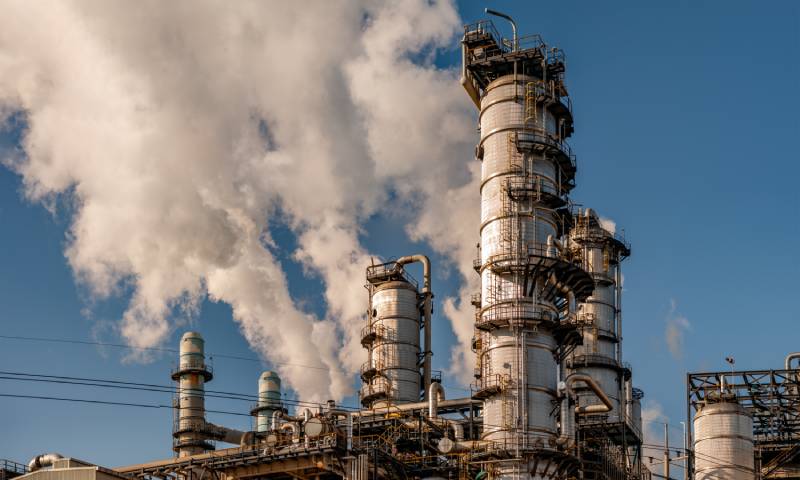3 Ways Hydrogen Sulfide Impacts the Environment

Hydrogen sulfide is a naturally occurring compound with a distinct rotten egg odor that arises from both natural and industrial processes. While it has legitimate industrial applications, including petroleum refinement and wastewater treatment, its environmental impact raises significant concerns. Understanding these effects is essential for creating balanced and sustainable solutions. Continue reading to learn about the primary ways hydrogen sulfide impacts the environment.
Air Quality
Hydrogen sulfide in the atmosphere poses challenges for air quality and public health. When released, it contributes to odor pollution, which can significantly reduce the quality of life in affected areas. Additionally, prolonged exposure to even low concentrations may affect breathing and overall respiratory health, particularly for individuals living near industrial sites or natural emission sources. Its interaction with other airborne sulfur compounds can contribute to an increase in air pollution that requires costly mitigation efforts from both industries and governments. Addressing these issues plays a significant role in reducing air contamination and protecting public health.
Water Bodies and Aquatic Life
Hydrogen sulfide is particularly harmful when it seeps into water systems, whether through natural decomposition, industrial runoff, or accidental leaks. Elevated levels of hydrogen sulfide in water reduce oxygen levels, leading to the formation of dead zones where aquatic life struggles to survive. Fish depletion and weakened ecosystems are direct consequences, threatening local biodiversity and the livelihoods of communities reliant on fishing. When hydrogen sulfide interacts with water sediments, it can also mobilize toxins that further compromise water quality. As such, it’s essential to monitor and regulate emission levels in marine and freshwater environments.
Soil Degradation
The presence of hydrogen sulfide in the soil disrupts the natural balance essential for plant growth and microbial ecosystems. This compound alters soil pH, often making environments less accommodating for crops and vegetation. Furthermore, long-term hydrogen sulfide exposure creates conditions favorable for toxins that inhibit essential microorganisms. These disruptions can extend agricultural challenges, decreasing crop yields and harming the farmers who depend on fertile lands for their livelihoods. Preventing soil degradation caused by hydrogen sulfide is instrumental in maintaining sustainable agricultural practices.
Mitigation and Prevention Techniques
Proactive efforts to control the dangers of hydrogen sulfide emissions are crucial for both environmental and public health. Innovations such as improved industrial scrubbers, biofiltration, and regular monitoring procedures have shown promise in reducing atmospheric release. At the community and government levels, creating stricter regulations and investing in hydrogen sulfide monitoring infrastructure has proven effective in places where this compound is a pressing challenge. Small-scale changes, like minimizing waste that emits hydrogen sulfide during decomposition, also contribute significantly to curbing its environmental impact.
Addressing hydrogen sulfide emissions is not just about improving current conditions—it’s about futureproofing our environment. Recognizing the ways hydrogen sulfide impacts the environment will inspire innovative approaches and foster collaboration among industries, scientists, and policymakers. Together, these efforts can ensure a cleaner, healthier, and more resilient planet.
Would you like to receive similar articles by email?





